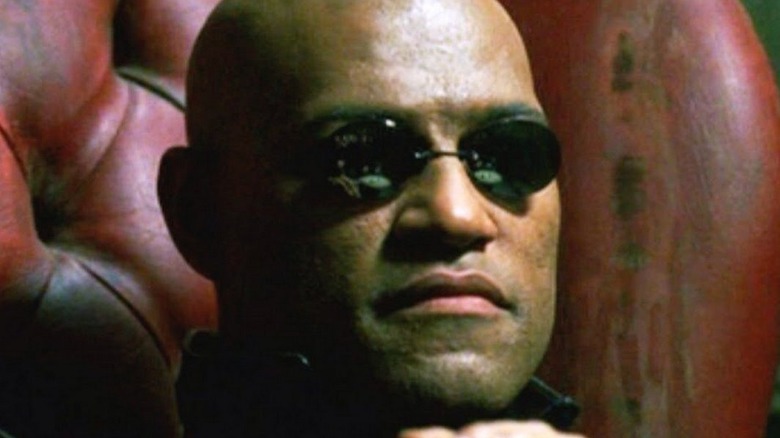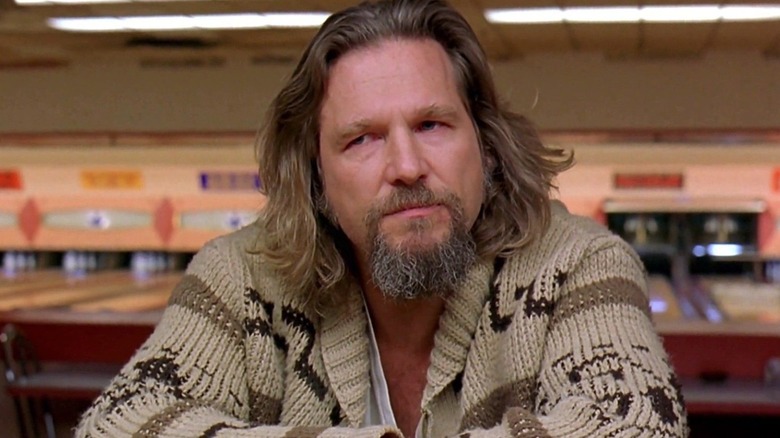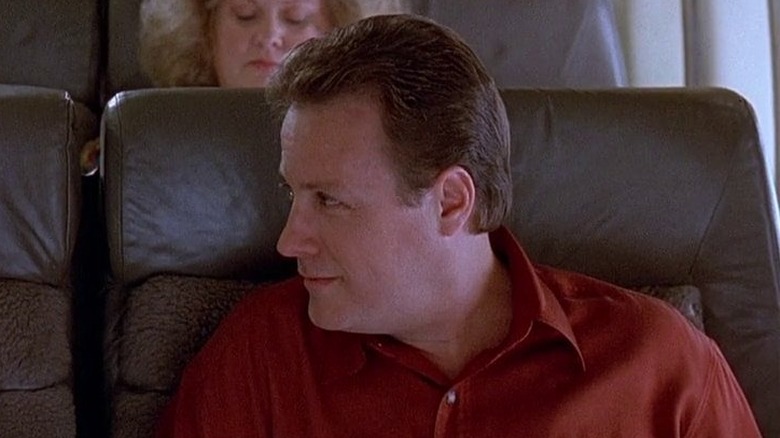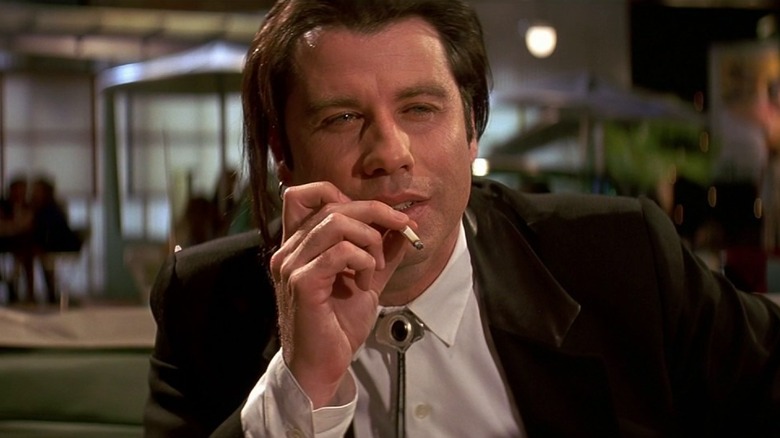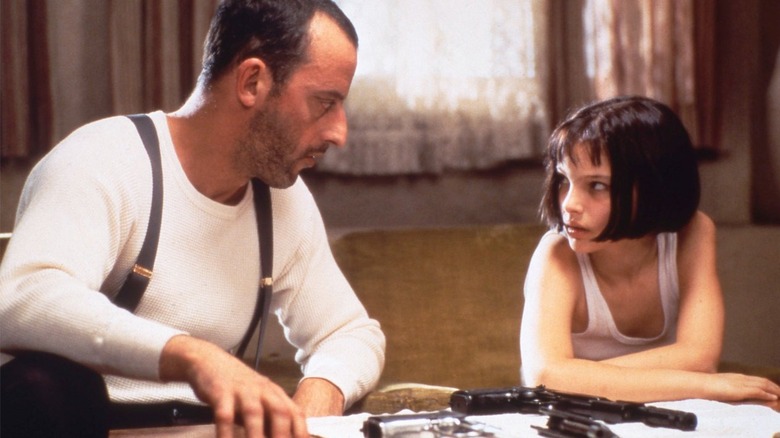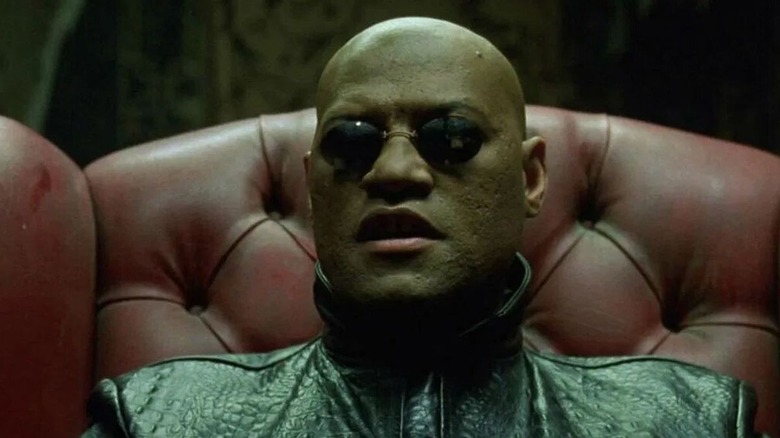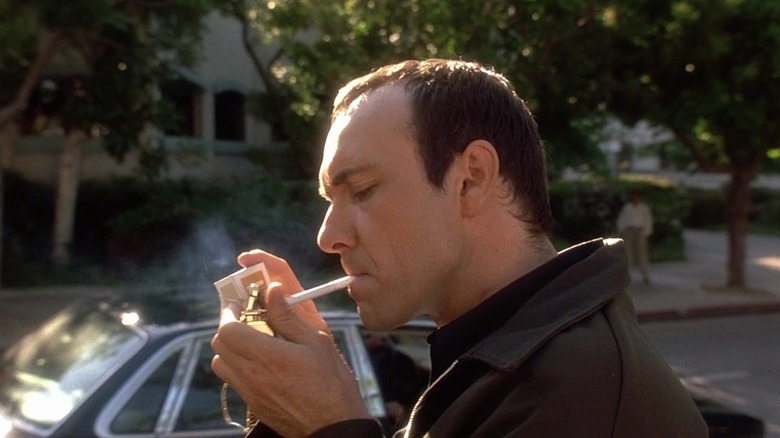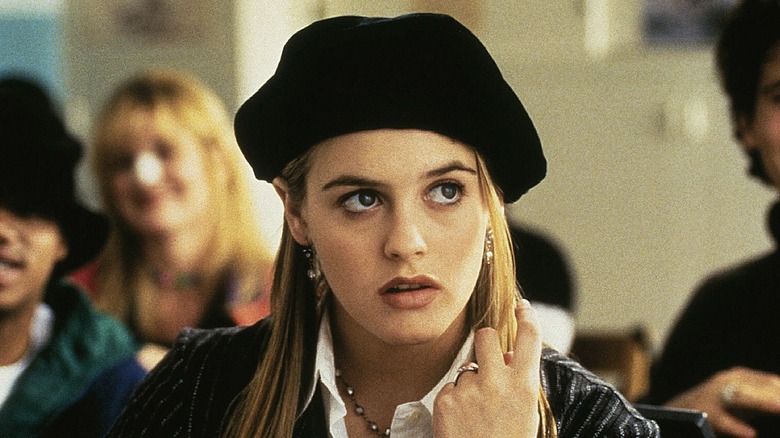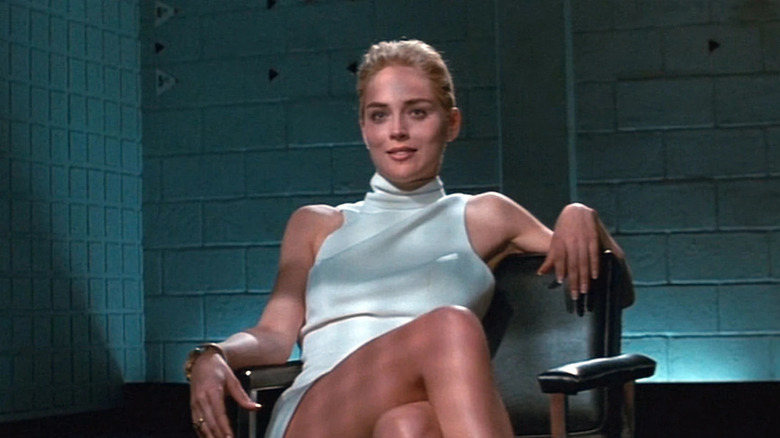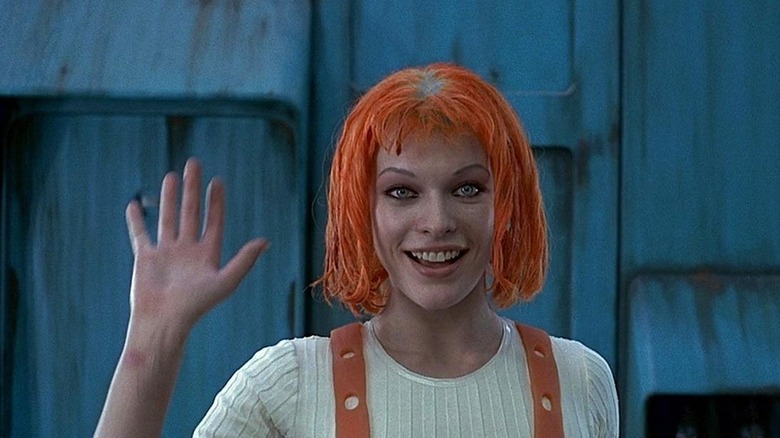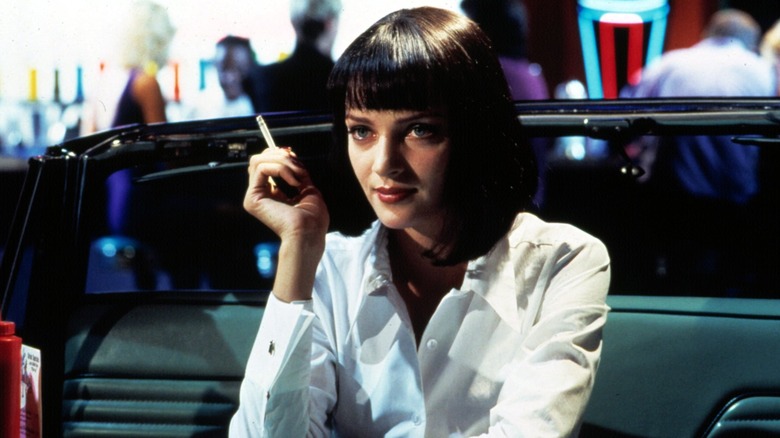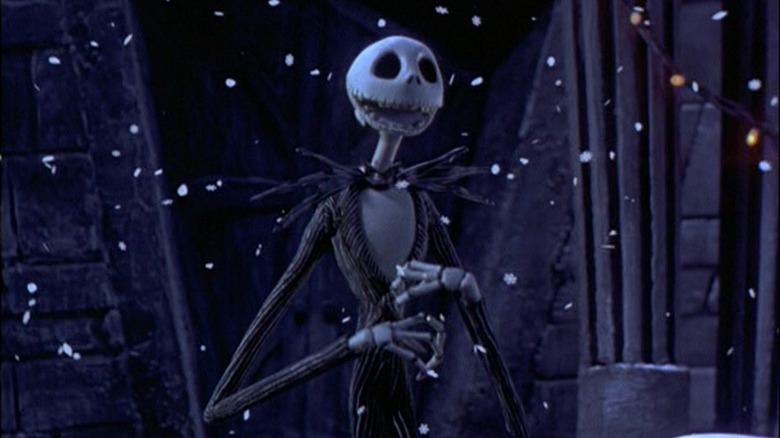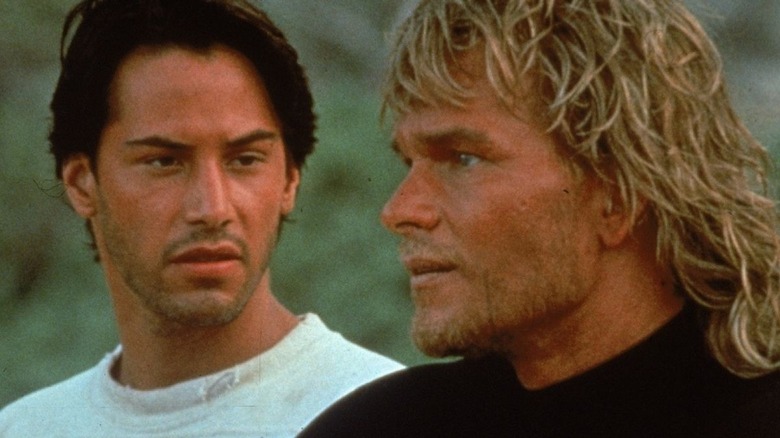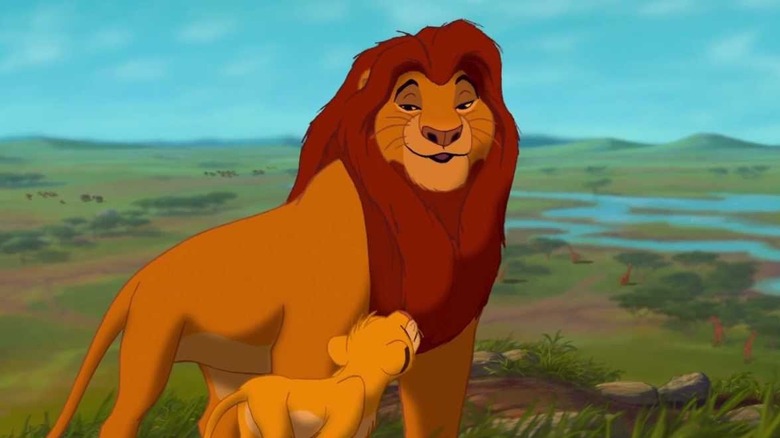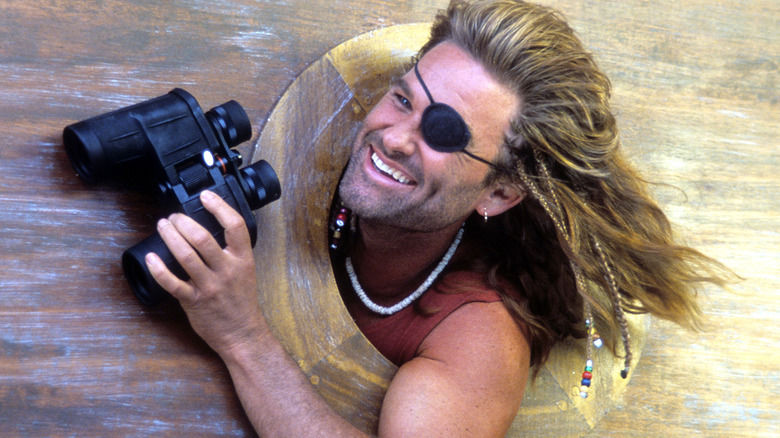Characters From '90s Movies That Need Their Own Origin Stories
The '90s were an amazing era in film. The decade was certainly marked by a sort of new Hollywood where anything was possible in storytelling. Filmmakers like Quentin Tarantino pushed the envelope as far as what a director could do with cinematic violence and unforgettable characters. Other films featured complex plots with real depth behind the performances.
Even children's fare seemed to be revitalized, with a certain degree of death and violence now permissible for a young audience. Many of the characters in the 1990s were enigmatic and brilliant; the black and white morality of the 1980s was traded for a large degree of moral ambiguity even in the heroes, which continues today. With such dynamic, deep and flawed characters, there are many whose origin stories we would have loved to see. Some might argue that Hollywood doesn't need more reboots or revisits, but here are some characters whose backstory could explode on the big screen.
The Dude (The Big Lebowski)
"Quite possibly the laziest (man) in Los Angeles County, which would place him high in the runnin' for laziest worldwide," narrates Sam Elliott as The Stranger to introduce the classic Coen Brothers movie, "The Big Lebowski." Jeffrey Lebowski, better known as the Dude, is a lazy stoner, scratching through life with a bathrobe and a spliff, who somehow gets tied up in a classic LA detective mystery for which he's seemingly unprepared.
Yet the Dude isn't stupid. When Maude Lebowski asks the Dude about his past, he claims he wrote the Port Huron Statement and was part of the Seattle Seven. If these claims are true, he was an intellectual and motivated activist in his early years. Then he claims he was a roadie for Metallica.
The Dude is based on a real person, Jeffrey Dowd, who was part of the Seattle Seven. Yet Dowd is a busy and successful executive and has accomplished a lot; Lebowski is, in the words of the Big Lebowski, a "bum." Somehow he manages to pay rent (though late) and bowling fees and other things, so how does he do that? Some residuals from a song or a published work or something? How he's managed to become the laziest man in LA County and still live completely on his own terms is a question we need an origin story to answer. Plus it would be fun to see The Dude as a young revolutionary.
Kevin McCallister's dad and offscreen uncle (Home Alone)
Every year around Christmas, social media seems to come alive with the question on the mind of every xennial: what did Kevin McCallister's dad do for a living? Kevin's father Peter McCallister pays for the extended family to fly to Florida in "Home Alone II" and is raising a big family in a Georgian mansion that sold for almost $1.6 million in 2012. He has a credit card with seemingly no limit. Yet he's not even the really rich one.
The really rich one would be Peter's brother. In "Home Alone," Peter's wife Kate tells Harry (the crook posing as a cop) that Peter's brother is flying them to Paris for Christmas. All four adults are flying first class. A quick check yields a price between $7,000 and $8,000 per ticket. Then there are the 11 kids flying coach at between $700 and $900 per passenger. So an estimate puts the cost of the tickets between $36,000 and $40,000. In "Home Alone II," Kevin uses his uncle's gutted New York City brownstone (presumably the same uncle) to set up his elaborate booby traps. So he owns a house in Paris and can afford to have his New York house completely remodeled.
What do the McCallister brothers do, exactly? Wouldn't it be interesting if their money came from something non-wholesome, like gun-running? That would explain Kevin's aptitude for making weapons out of household objects. Maybe they'll cover that in the reboot.
Vincent Vega (Pulp Fiction)
"Pulp Fiction" rocketed two careers to the top. The movie all but cemented Quentin Tarantino as America's next great director. It also revitalized John Travolta's career. His turn as Vincent Vega turned him into one of Hollywood's greatest comeback stories. And why not? Vega was a study in contradictions, both vulnerable and frightening, very relatable while at the same time so beyond us.
Vincent Vega is a cold-blooded hitman. Yet when not blasting his victims, Vega loves to gossip and question. He wins a dance competition with his boss's wife but his predilection towards heroin also leads him on a frantic drive through LA and a tense episode involving stabbing a needle full of adrenaline into his boss' wife to keep her from dying.
He likes to read but can't stand thinking too deeply. He follows orders without question from the boss but talks back to the boss's fixer. Who is Vincent Vega? And how did he, a kinda schlubby guy who likes to travel through Europe consuming fast food and heroin, become a top hitman for one of LA's mob bosses? A Vincent Vega origin story should prove fascinating: it would show us not only what leads a man who's more hipster than assassin into a job as a professional killer, but it would also likely hint at Marcellus Wallace's roots and how their paths crossed.
Leon (Leon: The Professional)
There's something sweet about an older professional taking in an orphaned 12-year-old and teaching her how to make it in the world. It sounds less sweet when the professional is a mob cleaner who's teaching her how to kill so she can take out the corrupt cops who bumped off her family (because her dad would no longer hide cocaine). While the role of Mathilda, the 12-year-old girl, is played by a young Natalie Portman, the character in "Leon: The Professional" whose origin story we really want to see is Leon (Jean Reno) himself.
Leon's smart and cold, yet he obviously possesses a great fountain of compassion, and through that compassion he can empathize with a child wanting revenge to the point where he'd train the tween in the ways of hunting and killing people.
At one point in the film Leon does explain that he'd loved a rich girl in Italy and when her father found out, the old man killed her; Leon, in revenge, killed the father, then went to New York City where the mob boss he currently works for trained him. This would make an amazing film on its own. The romance gone horribly wrong; the street urchin getting taken under the wing of a Mafioso; his coming-of-age as a professional killer. Yet all along, we'd see the sensitivity and humanity that would lead him to so readily take on this girl as his ward without question.
Morpheus (The Matrix)
Yes, Neo is the chosen one in "The Matrix" and his hero's journey forms the backbone of the film series. Morpheus, on the other hand, stays somewhat enigmatic despite how important he is to the story. He is one of the best warriors before Neo. He has one of the best teams. He has dedicated his life to finding the one, Neo, after a prophecy from the Oracle. He is a captain and in many ways a spiritual leader to many in Zion, to the consternation of the higher-ups who have never been on the front line.
What's Morpheus' story, though? He was freed younger than Neo obviously (Morpheus apologizes for pulling Neo out while so old) but still, he's managed to move very high up. And after Neo, he may be the best soldier of all the red-pill warriors. He fills the mentor role in Neo's hero's journey, similar to Obi-Wan in Luke Skywalker's. We're about to see more of Obi-Wan's backstory (though we did see a lot of his origins in the prequels and "The Clone Wars" series). No doubt Morpheus' would be worth telling as well — especially with the new "Matrix" sequel set to drop with a new actor playing the possibly-still-alive Morpheus.
Keyser Söze (The Usual Suspects)
Who can forget that final scene of "The Usual Suspects," when Kevin Spacey's limp turns into a confident strut and it's revealed that Verbal, the nothing conman with cerebral palsy, is actually legendary crime lord Keyser Söze? The twist at the end of "The Usual Suspects" may be one of the most amazing magic tricks in modern cinema, arguably the top reason that this is a legendary noir film.
Where did Keyser Söze come from and who is he, really? Since Verbal is revealed to have been lying about his own identity and Söze's at the same time, one can't take anything he said about the crime boss at face value except that Söze ordered the job. In fact, there's only one takeaway from Verbal's story that can be banked on, and it's one of the most famous lines from the movie: "The greatest trick the devil ever pulled was convincing the world he didn't exist."
While part of the allure of this film is the mystery surrounding Söze, that doesn't mean we wouldn't love to see who he actually is, how he actually operates, and even what really happened that night. Or at least pull back one of the layers. Plus how much of Verbal's story about Söze's history was actually true? When a legendary movie leaves more questions than answers, we can't help but wish we knew more.
Cher (Clueless)
Cher Horowitz may be one of the most sophisticated high school girls in the history of cinema, not only when it comes to her designer clothes and her complex understanding of social constructs, but also her deep understanding of how the world works (i.e. everything is negotiable and people are nicer when they're happy). Yes, the film "Clueless" is based on "Emma" and we get more character info in the Jane Austen novel. But even so, Cher is uniquely American, uniquely LA, and uniquely '90s. I mean, she was one of the first girls we ever saw with her own cellphone.
The world has a "Young Sheldon" so why not a young Cher? It would be a treat to see her as a precocious young girl, developing the deep wisdom and powerful relationships that would catapult her to the top of her high school's social hierarchy. We would also see how she puts on the armor of perfection that Cher presents to the world — despite the tragedy of losing a mother at a young age — and the very real compassion and insecurities that hide just below the surface.
Catherine Tramell (Basic Instinct)
The '90s produced a lot of thrillers with extremely graphic sex scenes but arguably "Basic Instinct" is at the top, and not only because of the legs uncrossing scene. Sharon Stone's Catherine Tramell is an archetype for the inscrutable, possibly murderous femme fatale who's also the smartest in the room. She combines brilliance, beauty, and eroticism with an almost psychopathic lack of emotion. Her psychological games are brilliant.
Eventually we see Tramell crying about how she's so sad that everybody just dies around her. The film ends with her supposedly happy to be free — before the final shot of the icepick under her bed. There is a lot of death in Tramell's background, and as Detective Curran goes down the rabbit hole more questions about those deaths come to the surface.
How does a young heiress turn into such a cold, manipulative woman? How does she become a fiction writer, or does she act out her ideas and just write them down? It would be amazing to get a glimpse of her transformation into a woman who's "got a 100 million bucks ... f***s fighters and rock and roll stars and she's got a degree in screwing with peoples' heads." An origin story would be one dynamite murder mystery.
Leeloo (The Fifth Element)
The '90s produced a slew of cinematic, award-winning directors, yet Luc Besson is still not as much of a household name as, say, Quentin Tarantino or Paul Thomas Anderson. But the French director has two characters on this list, Leon and now Leeloo, the intergalactic weapon personified as Milla Jovovich in "The Fifth Element."
Leeloo is re-created by scientists from a single arm that survives a spaceship's destruction. Is that what she originally looked like or is that what the scientists' machine made her look like? She's revealed to be a Supreme Being of the Universe, but is she a living being or an intergalactic science experiment? She has superhuman abilities and intelligence, could be seen as just a weapon in humanoid form, yet she also has deep, real emotions — how?
Where Leeloo came from and what she was like before breaking out of an Earth lab in 2259 would be the tip of the iceberg we'd want to see in her origin story. Was she born with her amazing battle skills or did somebody train her? If somebody trained her, that sequence alone would be amazing. There are so many revelations to be explored, not the least being whether she lived among the Mondoshawan and what that was like.
While we're dreaming, would it be too much to ask for a crossover between the ancient, pre-Earth Leeloo and, say, some MCU Asgardians?
Mia Wallace (Pulp Fiction)
Mia Wallace is the captivating raven-haired bombshell with a hungry nose and more confidence than you expect from a pulp gangster moll. But peel back the surface of the beautiful woman in "Pulp Fiction" and you'll notice how wistfully she speaks about her failed career as an actress, and how much she resents being the target of rumors. Mia Wallace, played by Uma Thurman, describes a pilot she was in called "Fox Force Five" about five badass women that sounds strikingly like the Deadly Vipers from Thurman and Tarantino's next team-up, "Kill Bill." So how does a sweet girl like her go from struggling actress to gangster's wife?
The story of the fallen starlet is as old as Hollywood itself. But Mia Wallace is no average Hollywood dropout. She appreciates a good milkshake almost as much as she appreciates a toot of blow, dances the watusi and speaks with wonderful diction and insight. All of this belies a truly unique individual, one whose journey from wherever she comes from to Hollywood and then to being the wife of a murderous mob boss is no doubt long and winding — and would make for a fascinating movie.
Jack Skellington (The Nightmare Before Christmas)
Stories of royalty have captivated humanity since the beginning of, well, humanity. So it goes with the Pumpkin King, Jack Skellington, whose identity crisis drives "The Nightmare Before Christmas." You can't help but wonder — how did he end up the King of Halloween Land?
Let's start with the basics: Was Jack Skellington ever human? There's no definitive proof that he was anything other than a ghastly pile of living bones but given the fact that by definition a skeleton is a structure that supports an animal body, he would have to have been a living, flesh-and-blood human at one point, right?
So to start, there's the question of whether he had a life before Halloween Land. Then there's the question of how he became the king. Young bag of bones meets the right people, has a few good ideas, scares some children, pulls off some epic spooky pranks, and through a mix of hard work, intelligence, courage, and dumb luck the little skeleton that could becomes a ruler. All we've ever seen Jack do is give a victory speech, whine about his boring existence, and do a horrible job delivering Christmas presents. Now we want the rise of Jack.
Bodhi (Point Break)
There are few movies that you could consider more of a bro flick than "Point Break," in which a bunch of surfer dudes rob banks to continue their party lifestyle of chasing waves and good times all over the world. It's ironic, then, that this silly dude-fest is directed by an Oscar-winning woman, Kathryn Bigelow. But it makes sense that at the heart of the movie sits a zen criminal, the captivating and complex Bodhi. He's part mystic, part anti-establishment pragmatist, all adrenaline junkie.
Patrick Swayze's Bodhi is possibly the most level-headed person in the movie, to the point where you almost side with him over Keanu Reeves and the cops. How did this surfer and his crew decide they'd start robbing banks? How did a team of mostly drunk party boys figure out how to actually pull off these smash and grab heists without getting caught, and who first decided they should dress up as American ex-presidents?
He's such a captivating character. Maybe if Nick Pappas hadn't taken lead from the crooks, Johnny Utah would have given the grown adolescent a break. After all, Bodhi was just looking for his own endless summer.
Mufasa (The Lion King)
No, we're not going to get into how "The Lion King" is an animal version of "Hamlet," nor will we discuss the whole "Disney ripped off Kimba the White Lion" thing. We're merely going to wonder how Mufasa became king, and such a strong and powerful king that just his name strikes terror into hyenas everywhere.
When Mufasa does show up, he throws the hyenas around like rag dolls. He's strong and fierce, much to the disappointment of his brother who thinks he should have the crown. What is a young Mufasa like? Did he simply inherit the throne, were there challenges to his rule, or did he have to take over like actual lions in nature do? Did he have that wanderlust his son Simba seems to have?
Obviously he's playful, given the scene where he teaches his son to hunt by pouncing on his hornbill advisor, or when he wrestles with young Simba. How does he remain such a playful and caring dad while also holding such heavy responsibility on his head? How is he so affectionate and at the same time so fierce? The adventures of a young Mufasa — maybe hitting the savannah with Rafiki or maybe the two fighting back to back given Rafiki's kung fu fighting skills — would help explain how he became such a great and just ruler and father. At the least, it would probably be more fun than another Simba sequel.
Captain Ron (Captain Ron)
This movie is polarizing at best. It has dismal reviews and most people dismiss Kurt Russell's "Captain Ron" as a stupid, silly bit of drivel. Yet there seems to be a sub-segment of people, often found in ski and beach communities, who absolutely love the freewheeling, beer-drinking, pirate-smuggling, island-woman-loving, clueless captain.
Captain Ron used to command the USS Saratoga (CV-60). That was an aircraft carrier and if that claim from Captain Ron was true, no doubt there would be some absolute hilarity seeing him in his naval days. He also supposedly had his eye eaten by a shark when he crashed his boss' boat into the Great Barrier reef, so that would be fun to see. Yes, the movie "Captain Ron" is stupid. But if you're really missing that all-inclusive on the Spanish Main where you did nothing but turn off your brain, drink, and relax in turquoise waters for a week, a Captain Ron origin story will take you where you want to go. At the very least it'll help you turn off your brain.
